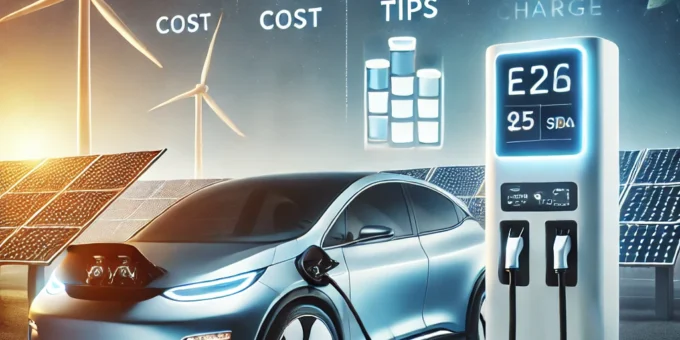
As electric vehicles (EVs) continue to rise in popularity, understanding how to charge them efficiently is key to maximizing their benefits. From reducing costs to adopting eco-friendly practices, knowing the ins and outs of EV charging helps you save money, time, and energy. This guide explores the costs, tips, and best practices for charging your EV effectively.
Understanding EV Charging Basics
1. Types of EV Chargers
- Level 1 (Home Charging):
- Uses a standard 120-volt outlet.
- Provides 3–5 miles of range per hour.
- Best for overnight charging or low daily mileage.
- Level 2 (Faster Home or Public Charging):
- Requires a 240-volt outlet or charging station.
- Adds 20–30 miles of range per hour.
- Ideal for daily charging needs.
- Level 3 (DC Fast Charging):
- Found at public stations.
- Charges an EV up to 80% in 30 minutes.
- Suitable for long trips or quick top-ups.
2. Types of Connectors
- CCS (Combined Charging System): Common in North America and Europe.
- CHAdeMO: Primarily used in Japanese EVs.
- Tesla Connector: Exclusive to Tesla vehicles (adapters available for other chargers).
Charging Costs Explained
Factors Influencing Costs
- Electricity Rates: Varies by location, provider, and time of use (TOU).
- Charger Type: Level 3 chargers are more expensive than Level 1 or 2.
- Battery Size: Larger batteries require more electricity to charge fully.
Average Costs
- Home Charging: $0.10–$0.30 per kWh. Charging a 60 kWh battery costs $6–$18, providing approximately 200–300 miles.
- Public Charging: $0.20–$0.60 per kWh, plus potential session fees.
- Subscription Services: Many charging networks offer memberships for flat monthly rates, reducing per-session costs.
Ways to Save on Charging Costs
- Charge during off-peak hours to take advantage of TOU discounts.
- Use free or discounted public chargers available at workplaces or shopping centers.
Tips for Charging Electric Vehicles Efficiently
1. Plan Your Charging Schedule
- Charge overnight at home for the lowest rates.
- Use apps to monitor energy use and charging status.
2. Avoid Overcharging
- Stop charging at 80% for daily use to prolong battery life.
- Use 100% charge only for long trips.
3. Leverage Smart Charging Features
- Enable scheduled charging to align with off-peak rates.
- Use apps to locate and reserve public chargers in advance.
4. Maintain Charging Equipment
- Regularly inspect cords and connectors for damage.
- Keep the charger clean and protected from extreme weather conditions.
Best Practices for Long-Term EV Battery Health
1. Moderate Charging Levels
- Avoid frequent use of DC fast chargers, as they generate more heat and stress the battery.
2. Prevent Deep Discharges
- Keep the battery level between 20% and 80% for optimal performance.
3. Park in Cool Locations
- Extreme heat can degrade battery health over time.
- If parking outdoors, use shaded areas or covers to minimize exposure.
4. Update Software
- Regular updates improve battery efficiency and introduce new features.